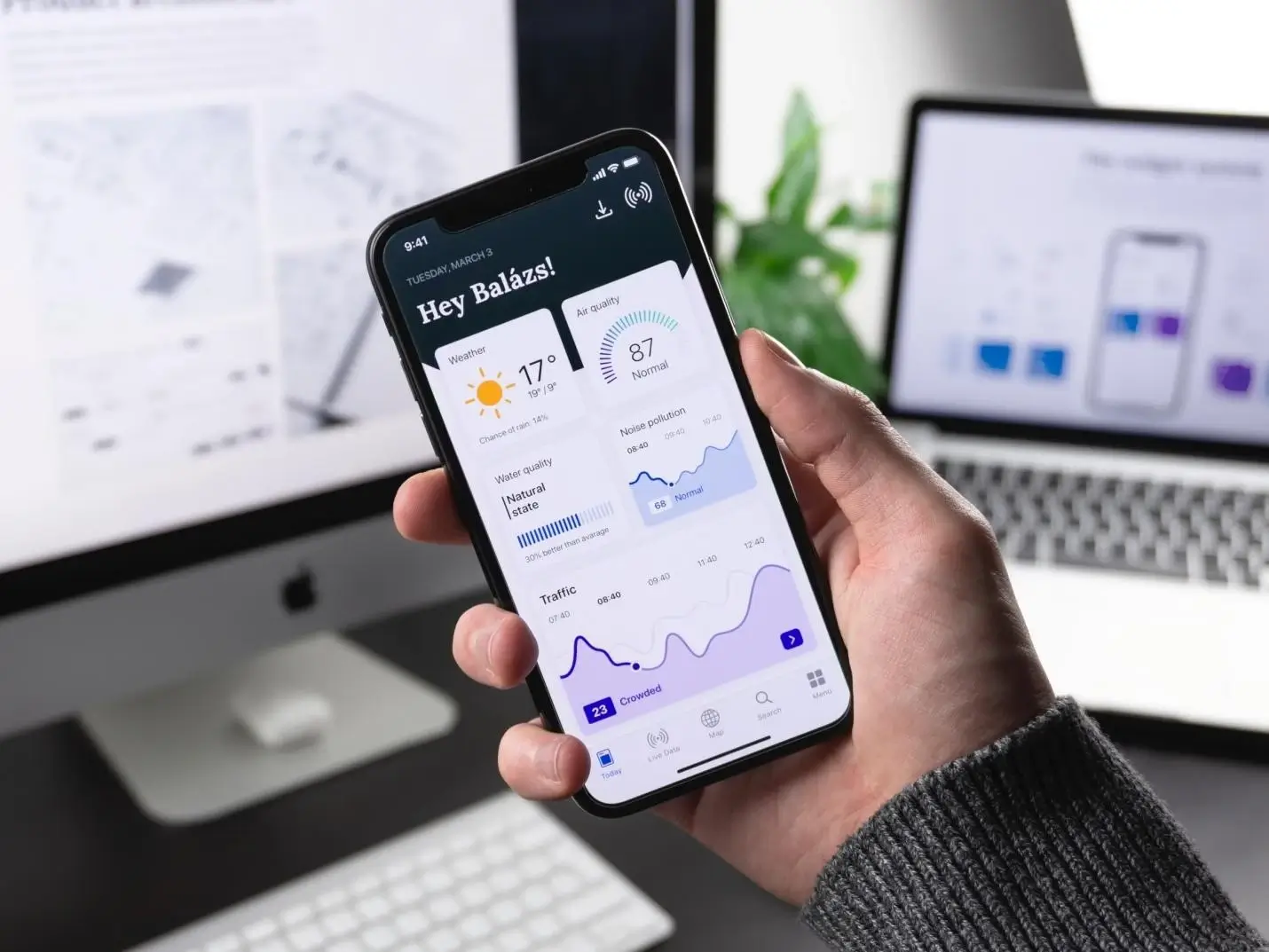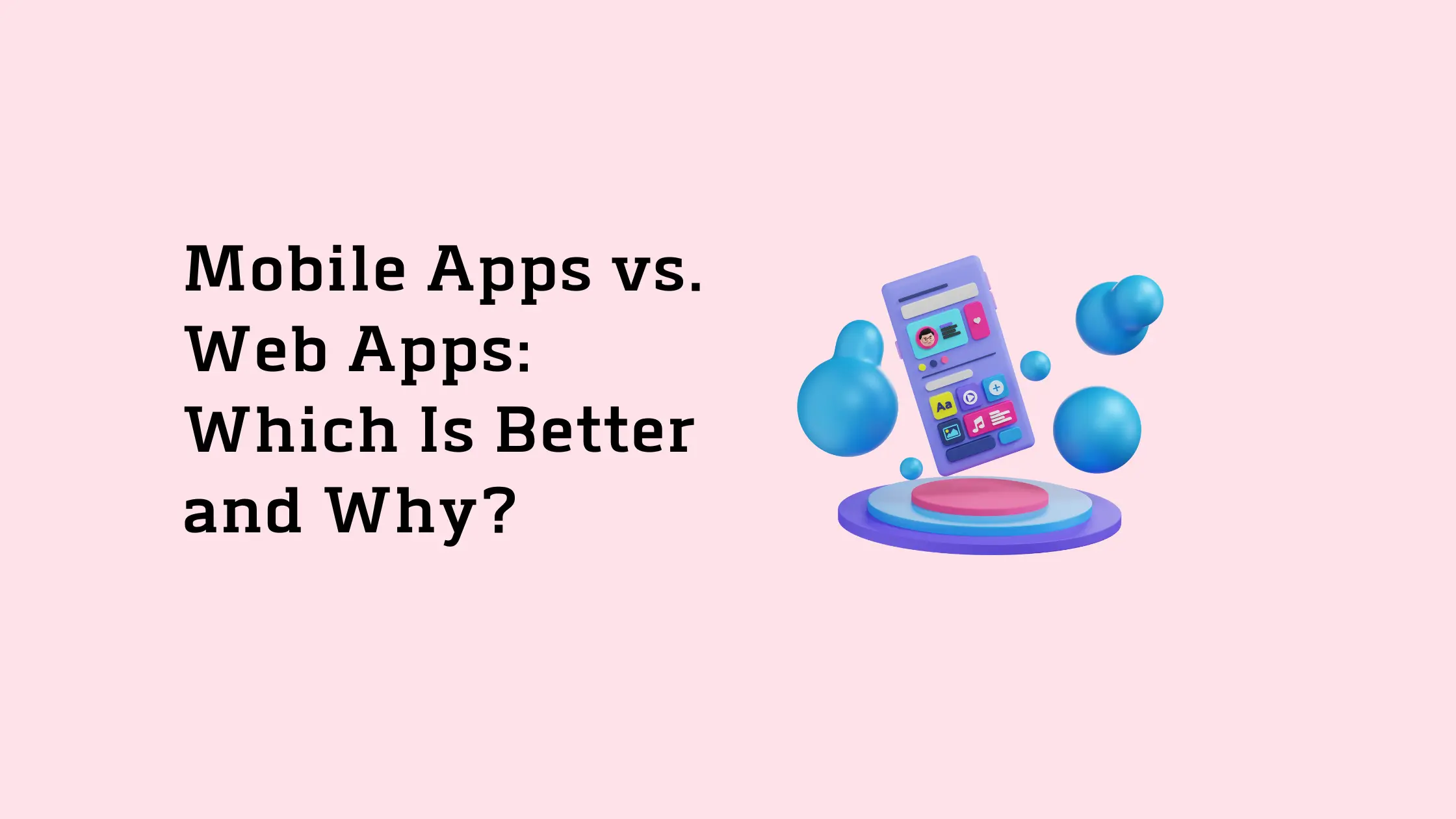It is commonly believed that mobile and internet applications are similar; however, they are quite different. Not only are there differentiating factors in the user’s experience, but they’re also developed and implemented in different ways, so it is important not to get mixed up. Consider Mobile Apps vs. Web Apps.
It is important to differentiate between web applications and websites. In simple terms, a web application is a web-based website built in a fluid manner and responsive to viewing by a smartphone. There are numerous kinds of websites available. Some are static and seldom updated, whereas others are responsive and feature lots of interaction. Web apps work like downloaded apps; however, you must access them from your smartphone’s browser. Be familiar with the following before making a decision such as React Native, Hybrid App Development, App Development, Costs In Development, Cross-Platform Development, Digital Product Development, Mobile Application Development Platform, Impacts On Users and Real Devices.
What’s the difference between a mobile application and a web-based app?
Mobile Apps vs. Web Apps
Mobile apps are developed to run on a specific platform, for example, iOS, to devices like the Apple iPhone or Android for the Samsung device. They can be downloaded and installed through an app store and have D to system resources, namely GPS and the camera function. Mobile apps run on the device and have admittance to Snapchat, Instagram, Google Maps, and Facebook Messenger are some popular mobile apps. Native mobile development tools help in the development of specialized apps which can run with 95 % high quality and ease.
Web applications, on the contrary, can be accessed through an internet browser. They will adapt to any device you’re using them on. They’re not native to any particular operating system and therefore don’t require to be installed or downloaded. Because of their ability to be responsive, they appear and work like mobile apps, which is why confusion can arise. Consider Mobile Apps vs. Web Apps.
Although the designs are identical and utilize the same color scheme and fonts, they are two different items. Consider for your mobile and web app the best Custom Software Product Development.
Web apps require an internet connection to be active for operation; however, mobile apps could operate offline. Mobile applications have the benefit of being quicker and more efficient, but they need users to download updates regularly. Web-based apps upgrade themselves.
Most importantly, the two types of mobile and web apps are created and constructed differently. So it is important to know how each is built to differentiate between them.
How do mobile apps build?

Mobile apps are more costly to create than web-based apps because they’re platform-specific; opening apps on different platforms begins with a new design and development. However, they’re more efficient and generally more sophisticated regarding functions and features. Refer to the ultimate guide for mobile android developers.
How are native mobile apps created?
Native mobile applications are built-in specific languages for each platform. Native app developers utilize Swift or Objective-C to create iOS applications, Java or C++ for Android apps, and C# for Windows Phone applications. This aspect means that If you wish to have the native application available for download on Android and iOS phones, you’ll have to develop multiple versions of your app, which, most likely, will not have the same user interfaces. Also, refer to the 10 steps to the best mobile app development process.
How are hybrid mobile apps developed?
It’s not a surprise — hybrid apps are a combination of both native and web applications. In terms of a mobile application, it is installed as a native application; however, when you launch it, it acts as a web-based application using the WebView feature. (WebView is a type of mini-web browser which can be set up to run in fullscreen.)
Hybrid apps are built specifically for operating systems and use the device’s capabilities as native apps. But, like web-based apps, hybrid applications are created with HTML, CSS, and JavaScript and are designed for different platforms.
Mobile Apps
Pros:
- Faster than web-based apps
- Better functionality since they can access the system resources
- Can work offline
- Secure and safe native apps have to be accepted by the app store.
- It is easier to develop due to the existence of developer tools such as interface elements, interface components, and SDKs.
Cons:
- It is more expensive to produce than web applications.
- Compatibility with various platforms (i.e., iOS and Android) generally means designing and developing the app from scratch.
- Costly to maintain and update
- It could be difficult to obtain a native app that is accepted through the App Store. Consider Mobile Apps vs. Web Apps.
How do web applications build?
Non-native tools were designed to make it easier to write code once and to provide developers with the capability to create applications. Web apps are generally constructed by using JavaScript, CSS, and HTML5. In contrast to mobile apps, there are no standards for software development kits that can be used for creating web-based applications. However, developers possess templates. Compared to mobile apps, web applications are generally faster and more simple to develop; however, they are more user-friendly in terms of capabilities. Refer to BootstrapJS-Consider a definitive guide to building apps
A growing trend called progressive web applications (PWAs) uses the latest browser advances that allow web applications to perform more like mobile applications. However, support for operating systems and features isn’t fully developed compared to dedicated mobile apps.
Web-based applications
Pros:
- It is not required to be installed or downloaded. Web apps work inside the browser.
- Easy to maintain because they share a common codebase regardless of mobile platforms
- Will they update themselves?
- Faster and simpler to create than mobile apps.
- App store approval is not required. Support, and can therefore be launched in a short time
Cons:
- Don’t work on the internet.
- Slower than mobile apps and less sophisticated in features
- It is possible that they are not as searchable as mobile apps because they’re not in a particular database like the app store
- Security and quality aren’t always guaranteed. Web applications don’t have to be accepted by the app store.
- Learn more about Free Platforms to Design and Create Prototyping to create Apps and Web Design
What kind of application should I use?
The short reply is that it is dependent. Do you have the ability to use a “fits all” application or need to look for something that matches your requirements better? Again, it’s contingent on the event. Take note of the features important to you, your goals for your business, or the app’s main purpose. If your application requires access to the camera of your device or GPS, then you should seriously consider creating an app native to mobile devices. Although hybrid apps for mobile aren’t quite as well-known as native or web-based apps, the number of companies that utilize them may be surprising. Consider the best UI/UX design for your mobile or web app. You should consider the following before making a decision as Desktop Devices, Browser Caching, App Store Approval Process App Store Approval Processes, Hybrid App Developers, Basic Content, Content Restrictions, Client-Side Scripting Languages, and Markup Languages.
Consider the usage of Native Code, Strategy Of Mobile Apps, App Type, Standardized Quality Control, Extensive Audience, Social Networks, Social Network App, Mobile Traffic, and Bounce Rate.
Conclusion
There are various aspects to consider when choosing the type of app that is ideal for your business. When you develop an app for the web, a native application, or a hybrid, it is important to keep your users at the forefront of your mind to give them the best value and user experience.
FAQs
How to create an app for the web?
Progressive web apps are an ideal fit for companies looking to develop more mobile-friendly features than the current experience offered through their mobile website.
What is the best time to create an application for mobiles that is native?
Although a hybrid mobile application can use certain functions, it isn’t likely to be the most enjoyable experience for the users. For example, Pokemon Go is a native application that uses the device’s camera, GPS features, and AR software.
What is the best time to create a mobile hybrid app?
In some instances, web-based apps are transformed into hybrid mobile applications to gain native-like features, such as an app marketplace. For example, Twitter can be described as a hybrid application with the appearance and feel of a native application.

Dr.Supreena has published two international books in finance with the able guidance of her guide and department at Ethiraj College of Women, University of Madras during her PhD in Economics and Finance. She is the Recipient of Dr Vedagiri Shanmugasundaram (An Oxford Scholar) Award for Outstanding and Successful PhD Candidate from Ethiraj College for Women concerning research record and academic distinction. She is experienced in the domain of finance, digital marketing and information technology writing on Artificial Intelligence, IoT, PaaS and SaaS cloud computing etc. She is NIIT qualified in Advanced Network Computing, Google Certified in digital marketing. Her hobbies to maintain balance and reduce stress are gardening and cooking.


